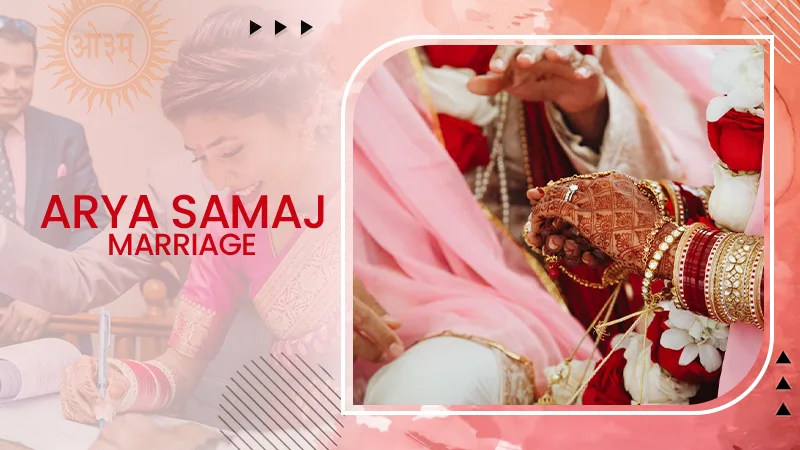

The procedure of Arya Samaj Marriage is quite simple & modest and it takes around 2 to 3 hours for the entire wedding ceremony. All the rituals are properly followed to ensure that the most important day of your life starts with the blessings of God. Almost all the arrangements are already made at the Arya Samaj Mandir and you need to bring the mandatory things- Mangalsutra, Sindoor, Sweets, and 2 Garlands.
Apart from that, be there at the Arya Samaj Mandir in Delhi for the solemnization of marriage on time along with the required documents and two witnesses. The witnesses need to have their ID proofs and the groom and the bride need to bring a birth certificate together with an affidavit stating the date of birth, marital status, and nationality. These are some of the Arya Samaj marriage rules that have to be followed before getting started with the procedure.
Wedding in Arya Samaj Mandir is equally holistic as the regular weddings; the priest chants all the holy mantras and the bride and the groom have to perform all the rituals in the right manner to consider each other as their husband and wife and live a happy and long married life.
Arya Samaj Marriage is completely legal and the marriage certificate is issued on the same day. The marriage certificate can be used as a proof of your wedding in the court of law and using the same certificate, you can register your marriage in the Registration Office after performing marriage such as if the marriage takes place in Delhi’s Arya Samaj Mandir, you can do the marriage registration in Delhi.
Arya Samaj marriage will cost you somewhere around Rs.5000 and Rs.20,000 as it depends on the city of the party, seasons, pandit’s charges and lawyers fee, wedding ritual, and marriage certificate cost.
To get a divorce in a marriage performed as per Arya Samaj Marriage customs, the procedure to dissolve the marriages is similar to the Hindu divorce procedure as per Hindu Marriage Act.
The couples can file for a mutual divorce through consent or fight the divorce through a contest where there is no mutual consent.
Divorce by mutual consent falls under Section 13-B and includes the following considerations:
According to the Hindu Marriage Act, to get a divorce without mutual consent, following reasons stand valid:
